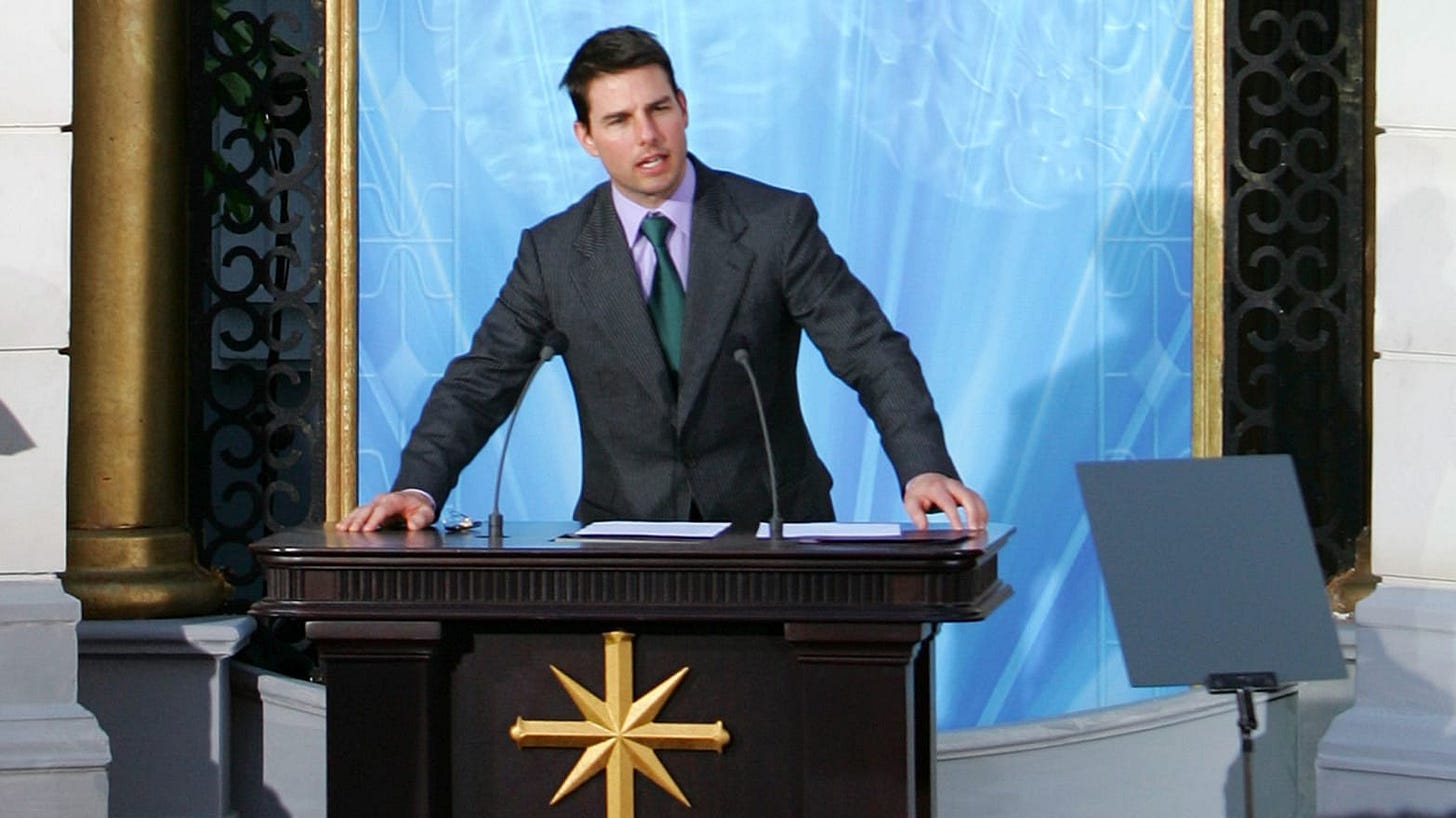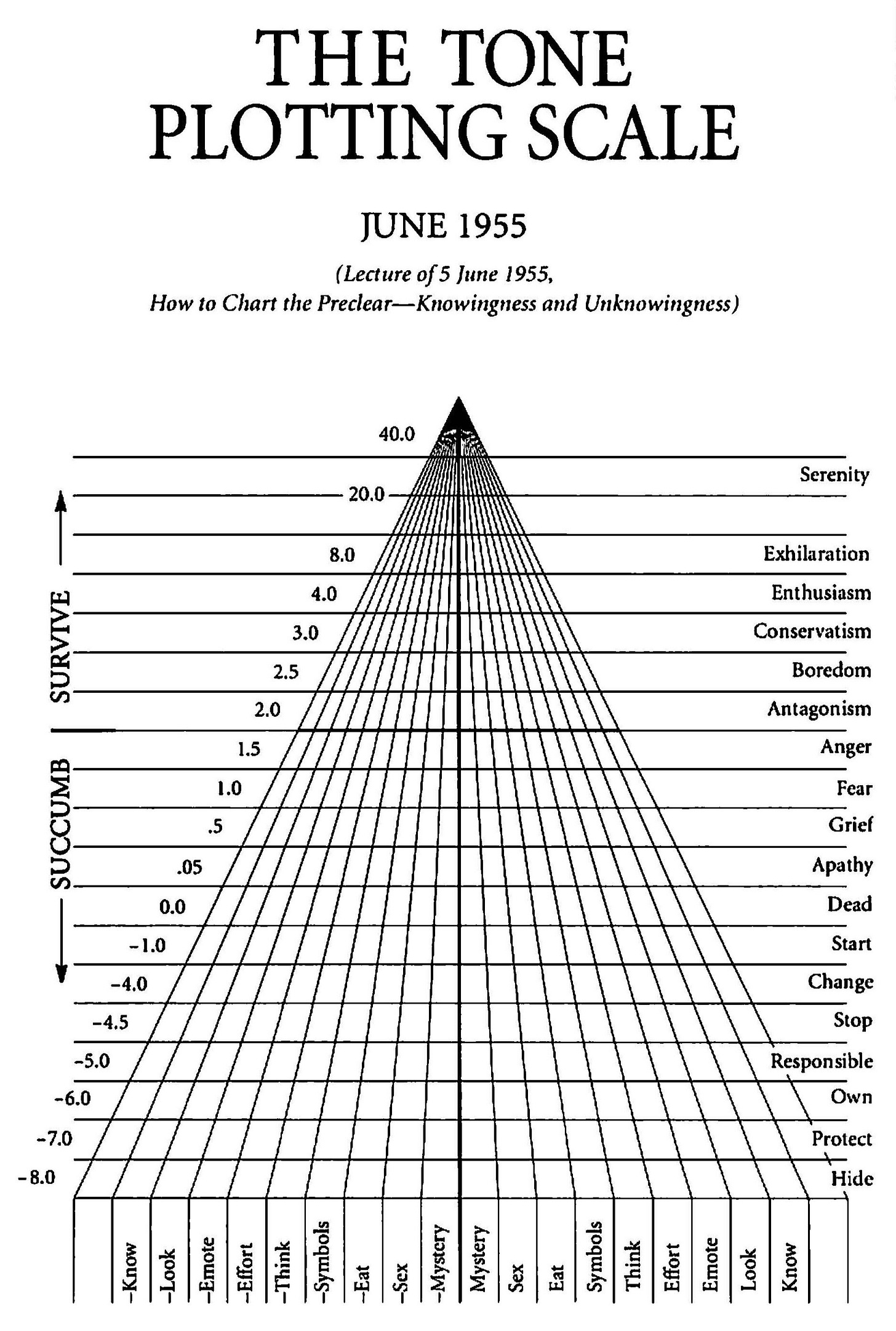On Conversion
Have you ever come close to changing your beliefs?
This is something new for The Carlson Letter. This letter is the first in an exchange with David Volodzko, a journalist and former university lecturer of logic. He is the author of the newsletter The Radicalist and host of the related podcast, and his reporting and analysis has been published in New York Magazine, Foreign Policy, The Nation, Bloomberg, and The Wall Street Journal.
He contacted me to set up a letter exchange. I’d never done one before—at least not in public—but was intrigued, as I have enjoyed his writing. We agreed upon a general topic, and I set out to write the first letter, which you see below.

Dear David,
In this season of Advent, I have been thinking about belief.
I grew up in a religious (Lutheran) household, and am religious to this day.
(I used to hide this fact when I was a reporter. On one occasion, I was asked directly by my editor if I was religious. When I said yes, he smirked. “Really?”)
Part of the process of becoming an adult is wrestling with the beliefs you have been given.
My process of wrestling has led me to a philosophy of givenness.
A wanderer, geographically and intellectually, for much of my life, I now prize precisely what is fixed.
(I left home outside Philadelphia at 16, and spent years abroad, until I moved home 18 years later.)
Learning to love the physical and mental stuff that’s been given to me without my conscious choice—this body; this birthplace; this family; these perceptions; these ideas; these beliefs; this world—has brought me a stabler happiness than trying futilely to construct reality from scratch.
(Though nothing, not even an atom, is made from scratch.)
For a long time, I used to search among ideologies and ideas for something suitable, like rummaging for an outfit at a shop.
Friends of mine have gone through various forms of conversion: religious, cultural, ideological.
There’s the poor rancher boy who grew up in a conservative, Christian household, moved west, and built his life around a secular, globalist ideology.
The Irish Catholic who left the Church and converted to mystical Judaism.
The cynical, liberal pothead who converted to conservative Orthodoxy and moved to the desert.
The military orphan who embraced Asian cultures so thoroughly he became almost unrecognizable at home.
(Many of these changes have been to their good.)
In my life, I’ve had brief flirtations with conversion. Phases of atheism, nihilism, pacifism, idealism, literary aestheticism. But none stuck.
These conversions represent alternative lives; selves that might have been, that could live on elsewhere.
I'm fascinated by this idea of different versions of us, as belief systems are one of the few ways we have for changing ourselves.
Tell me something, David: You study ideology. What belief system did you come closest to converting to? What belief systems have had the strongest pull on you, for good or ill?
Mine—or one of mine; the strangest one—is Scientology.
Yes, Scientology.
Back in 2008-2010, there was an upsurge in interest in Scientology. High-ranking defectors began to speak out. A few books came out quoting them on the strange and abusive practices alleged under the president, a native of the Philadelphia countryside named David Miscavige.
I was a young reporter, and I made Scientology my beat for a time.
I reported on a secretive, non-accredited boarding school where the children of Scientology’s elite (Will Smith, et al.) were educated. I reported on a Scientology business school. I covered the church's expansion into Taiwan—its foothold in the Chinese-speaking world, which heavily regulates spiritual movements, especially ones from abroad.

One of the barriers to reporting on Scientology well is that there is a vast literature that almost nobody outside of Scientology reads.
L. Ron Hubbard was a logomaniac, and his published and unpublished writings—not to mention his audio recordings—span thousands of volumes.
But I dug in. I read and listened to as much as I could take, and then went back for more. It took immense patience to pierce the obscure jargon Hubbard insisted everyone use.
Eventually, it almost made sense.
What I came to understand was that Scientology, in its basic form, gave people a method to be trained, slowly and systematically, to suppress emotional reactions to traumatic moments.
This gave them a kind of emotional power.
And over time, this form of quasi-therapy was extended in the direction of giving positive mental powers.
How much can you control with your mind?
The goal was an attainment of physical, mental, and (in a sense) transcendent or spiritual perfection in this life and this body.
Of course, the means by which this was achieved was expensive and abusive.
But for a time, I felt I could understand the attraction to Scientology. It was, in a sense, a kind of mental and emotional bootcamp, a self-improvement exercise with different levels of attainment. It gamified reality and promised huge—cosmic—rewards with advancement.
I also had a personal reason for wanting to understand it.
A brilliant and troubled relative of mine, after graduating early from college, came to be friends with L. Ron Hubbard’s son, “Nibs,” in California.
The two were so close that my relative, an early Scientologist, made out a life insurance policy to be paid to Nibs on occasion of his death.
As it happened, sometime later my relative was found dead in Hubbard’s backyard. He had suffered a fatal rifle wound to the head. The police ruled it a suicide.
My extended family didn’t accept this, understandably. After years of investigation—and a great deal of uncertainty —the best theory I heard was that this relative, who was bright and intuitive, came to believe in a form of reincarnation.
While there’s no way of knowing, it seemed Nibs may have played a part in encouraging my relative to believe that if he died, his soul could pass to a child in my relative's wife’s womb. The funds collected from insurance would give him a fortune on which to raise himself.
Crazy as it sounds, this conclusion seems plausible.
If Scientology were powerful enough to make my relative believe this, there must have been something to it—an ability to persuade, to coerce, to make you betray yourself.
This understanding, and my exploration of its beliefs, ultimately made me more empathetic to Scientologists, and to cultists.
Even as a critic—especially as a critic—if you can’t understand the attraction of what you study, you'll never see the full truth of it.
This is the problem with many reporters on religion. And, for that matter, partisan commentators.
That's why the best critics of Communism and Marxism were those who understood it from the inside: Leszek Kolakowski, Czeslaw Milosz, Aleksandr Solzhenitsyn.
You can’t effectively enter a systemic edifice of thought unless you are willing to step through the door. You must give something of yourself to be admitted.
What do you think?
Ben







This piece resonated with me as I converted from Catholicism to Judaism. Appreciate you writing it.
I have participated in organized religions and it has always been a struggle for me to be guided by the teachings of what others seem to embrace as all or nothing. My belief is, there is never an all or a nothing. Even the word of god was transcribed by the hand of man. Men were commissioned by kings and queens to construct a bible that would accommodate the ruling of their kingdoms. I have always been told to "fear the word of god" that's never set well with me. Understand, I have faith in god and it is that faith that guides me in everything I am. It has always been very personal and private to me. It is the grace in my faith that guides me away from harm and if I'm lost or question it's power the fury will surely discipline my neglect. It fills my heart with love and compassion, not for my keeping but to give away, with no self expectations.
We may describe our beliefs differently but it belongs to us equally and without prejudice. God gave us the ability to discover independently for a reason. It is my faith that navigates me through this life, down a path towards what I know as heaven.
I share my faith through my actions not my words. We use words to define what we think and feel, one changed word can redefine what's meant. It is my actions that can not be redefined they show the truth of my faith.
So is it all or nothing? I don't believe so, even just a little is better than nothing at all.